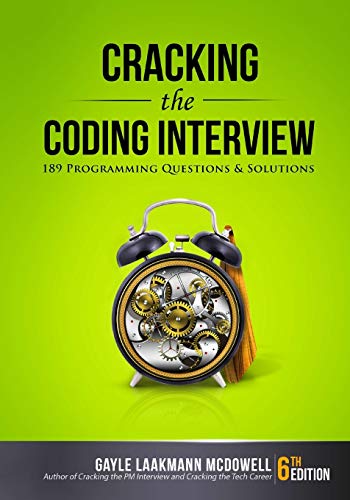What are
/r/uchicago's
favorite Products & Services?
From 3.5 billion Reddit comments
The most popular Products mentioned in /r/uchicago:
The most popular Services mentioned in /r/uchicago:
Library Genesis
Sendgrid
reditr
Atom
Gofile.io
Wayback Machine
Healthcare.gov
Weather Underground
Quire
Swagbucks
The most popular reviews in /r/uchicago:
HUM: 2 quarters HBC. Loved the first quarter because of prof, and I hadn't read Genesis. Second quarter was not so great because of prof, and I had trouble enjoying Nicomachean Ethics.
ART: 1 quarter intro to music analysis and criticism: was more work than I expected, but I play/listen to music so I found it engaging. The prof was a grad student which is somewhat unusual from what I know. Don't take this class if you can't stand opera.
SOSC: Doing Self right now. Didn't know much at all about the texts going in, so I'm loving Smith and Marx. Great prof helps
MATH: Did 152 first quarter first year. Curve was competitive so it was a bit stressful. They cram delta epsilon and other 151 stuff into the first 1 or 2 weeks which sucked.
Physical sciences: Did all three quarters of the comprehensive gen chem sequence. Very straightforward yet time consuming class. Lab reports were a pain.
Bio: Did the advanced fundamentals sequence. Definitely my hardest yet most rewarding class. Could go on and on about it if you're interested. I'd only take this if you intend on being a bio major.
edit - Related advice: you will enjoy your core classes more if you just do the reading. Even if it's boring. You don't want to sit through a discussion with nothing to contribute.
My time to shine. I built my career (risk management for listed equity options) on Black Scholes and Beyond and Natenberg. They might be a little dated now but they are still the two go-to books of you want to learn equity options.
I've had mixed experiences with WSL. On one hand it works fine for most command line tools, but on the other hand trying to edit files in a text editor (Sublime/Atom) and then run those files in the terminal was a headache.
I would recommend picking up one of Atom/Sublime Text and looking into SFTP plugins for them. (Atom has one called remote-ftp). You can then use WSL/Some other UNIX emulator to SSH into a CSIL (CSIL == Crerar) computer and user remote-ftp to "ssh" your text editor to the same computer. This way, your edits to your files are automatically synced with the remote computer and you can compile/run them in your terminal.
Your codes performance on CSIL machines is theoretically what you're meant to be graded on anyway. (In practice graders run things all over the place but you can always ask your prof for a regrade if it doesn't work on their machine but runs on CSIL machines)
You are absolutely in the minority. The vast majority of people that don't convert simply ignore the emails. I know this because you can pay for access to spam reputation and we routinely did in order to evaluate the costs/benefits of our cold outreach campaigns. You can "rage against the dying of the light" and wish it were otherwise but it isn't 🤷♂️
For time management, I suggest using a todo list or project management software.
Currently using a free app called Quire. Normally I set a todo list on the day before and set reminders for each task. This helps me keep track of deadlines and remember what I should be doing.
I'm a lowly pre-first year, but I've seen this book referenced on various subreddits! https://www.amazon.com/Cracking-Coding-Interview-Programming-Questions/dp/0984782850
Prospective CS major here.
My peer advisor and another user on this subreddit both recommend that I learn a coding language prior to CS151. Will this C++ book suffice? (I understand that CS151 doesn't assume any prior knowledge in CS and it uses Racket, but I'd like to get a leg up.)
Semi-related question: any general advice on note-taking?
https://www.amazon.com/Programming-Principles-Practice-Using-2nd/dp/0321992784
Will this suffice, or do you have another recommendation?
I think this is a really good jacket and will last 4 years: https://www.amazon.com/Orolay-Womens-Thickened-Jacket-Green/dp/B00HHOXT0A/ref=sr_1_3_sspa?dchild=1&keywords=winter+coat&qid=1609372502&sr=8-3-spons&psc=1&spLa=ZW5jcnlwdGVkUXVhbGlmaWVyPUFTVkQ5MVJHR1g3TEcmZW5jcnlwdGVkSWQ9QTA5MzQzODkySjlFTFNINjJVQVRNJmVuY3J5cHRlZEFkSWQ9QTA4OTc3MTRHNEE5MFozNjhWM0cmd2lkZ2V0TmFtZT1zcF9hdGYmYWN0aW9uPWNsaWNrUmVkaXJlY3QmZG9Ob3RMb2dDbGljaz10cnVl
I took AP Physics C my senior year of high school and felt like that was really good prep for the first quarter of 140s (mechanics), but not so much for the second two quarters (e&m and waves). If you have multivariable experience, that should help a lot as the math is where I felt like my background was weaker (I just had calc BC experience). Honors calc didn't help at all with physics, which was my biggest frustration with both departments. Honors calc is basically going back through introductory calculus and proving everything. It's a really amazing class for getting a good strong-hold on proof-based math, but it's not helpful for applications such as physics. The same thing definitely applies to honors analysis, though some of the concepts you learn will have physics applications even if the class doesn't each you directly how to apply the math. The physics department has the attitude that you should learn the math necessary for physics classes in the math department or on your own, whereas all of our math department classes are highly proof and theory based. I'd suggest picking up a copy of Div, Grad, Curl, and All of That for self-study of math-for-physics. I ended up majoring in visual art, but finished 3/4 of the math major.











